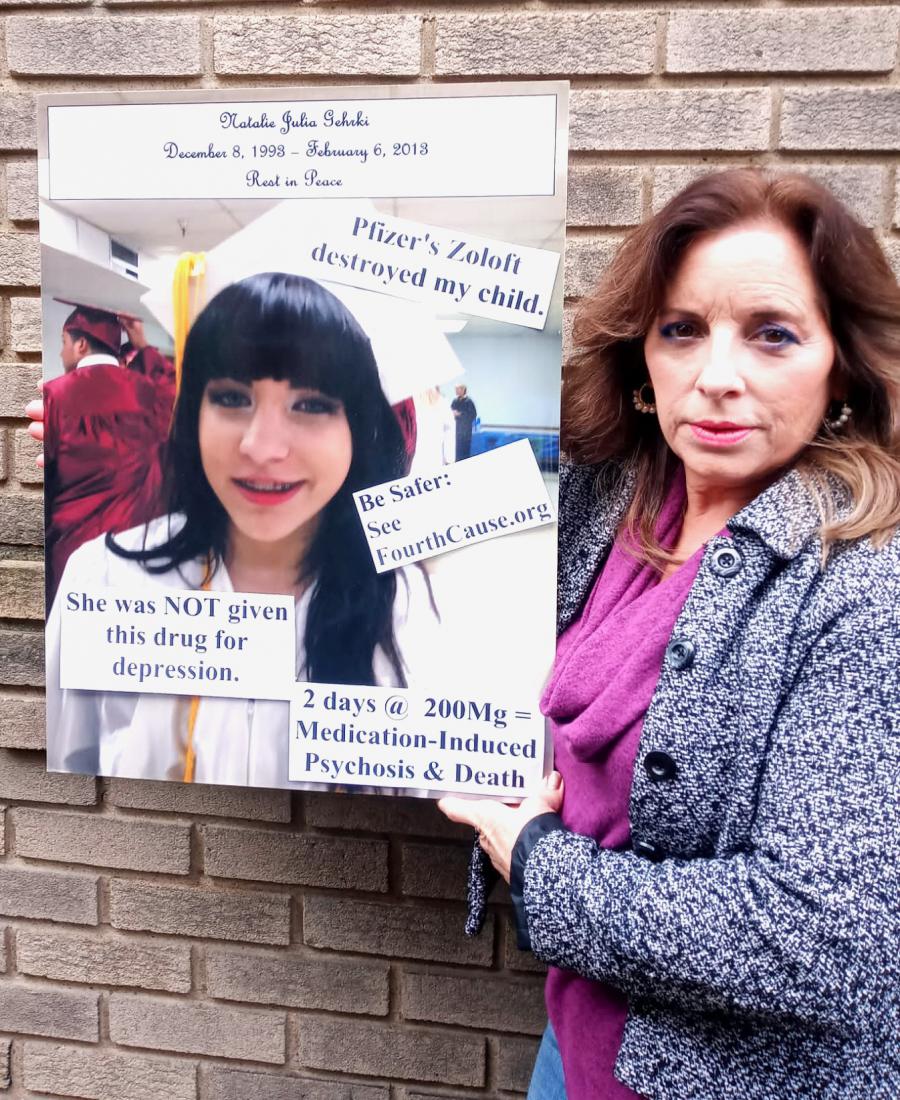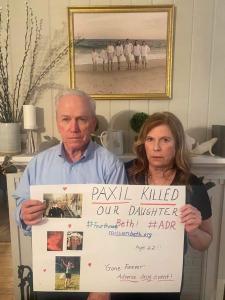
Medication-Induced Suicides are Adverse Drug Events, Not Deaths of Despair
Learn More about Medication-Induced Suicide On National Adverse Drug Event Awareness Day
CHICAGO, IL, US, March 24, 2023/EINPresswire.com/ -- National Adverse Drug Event Awareness Day, recognized annually on March 24th, serves as a critical reminder that Adverse Drug Events (ADEs) are the fourth leading cause of death in the US. The American Society of Pharmacoviligence (ASP), states the tragic reality is that the number of avoidable deaths related to ADEs is likely higher than reported because many deaths precipitated by ADEs are never recorded. ASP is launching a social media campaign encouraging real people to spotlight this public health epidemic by sharing their ADE experiences using the hashtag #FourthCause and sharing the FourthCause.org website.
The Medication-Induced Suicide Prevention and Education Foundation in Memory of Stewart Dolin (MISSD) is a safe-patient nonprofit dedicated to increasing awareness that various prescription drugs, even when taken as directed or discontinued, can cause suicidal thoughts, self-harm, violence, and iatrogenic suicide. One cause of these ADEs is a drug-induced disorder called akathisia.
“Healthcare professionals, consumers, and caregivers need to know the causes and symptoms of akathisia to reduce avoidable suffering and deaths,” said Wendy Dolin, MISSD founder. Akathisia is often missed, mistreated, or misdiagnosed as depression or anxiety, and the offending drug is then wrongly increased, often precipitating self-harm, violence, and iatrogenic suicide. Iatrogenic means caused by a medical error or medical intervention."
Many different types of drug classes can cause akathisia. They include medicines marketed for asthma, hair loss, anxiety, high blood pressure, depression, and acne. Akathisia symptoms can include delirium, psychosis, insomnia, agitation, cognitive confusion, skin-crawling, violent nightmares, pacing, and inner and outer restlessness.
The public is encouraged to see and share MISSD's informative public health videos, take a free, accredited online akathisia course, download educational brochures, and learn from others who suffered akathisia or lost family members to akathisia-induced death. Their lived experiences are shared on the MISSD podcast, Akathisia Stories. While each story is unique, their tragic commonality is that sufferers and their caregivers were not specifically informed that the prescribed medication could cause akathisia. Therefore, they were unable to identify that the critical symptoms they suffered or witnessed were signs of akathisia and drug toxicity and that immediate and appropriate medical treatment was needed.
"MISSD works daily to save lives through increased awareness, yet many mental health and suicide prevention organizations refuse to mention akathisia and fail to publicize the causes and symptoms. Pharmaceutical ads that briefly mention suicide “side effects” also neglect to communicate that these risks are frequently caused by akathisia. Such deliberate omissions increase the likelihood that psychiatric adverse drug effects are falsely attributed to life challenges or to consumers themselves, and not to the pharmaceutical product,” said Dolin.
To improve patient safety, consumers should ask their prescribers about possible drug side effects and carefully read the patient information leaflet before starting any prescription. When stopping, starting, or changing a medication dosage or type, consumers should also identify a “medication buddy” to help monitor for any unusual changes in behavior.
Wendy Dolin
MISSD
+1 703-380-5466
email us here
Visit us on social media:
Facebook
Twitter
YouTube
What is Akathisia?
Distribution channels: Chemical Industry, Consumer Goods, Culture, Society & Lifestyle, Healthcare & Pharmaceuticals Industry, Science
Legal Disclaimer:
EIN Presswire provides this news content "as is" without warranty of any kind. We do not accept any responsibility or liability for the accuracy, content, images, videos, licenses, completeness, legality, or reliability of the information contained in this article. If you have any complaints or copyright issues related to this article, kindly contact the author above.
Submit your press release


